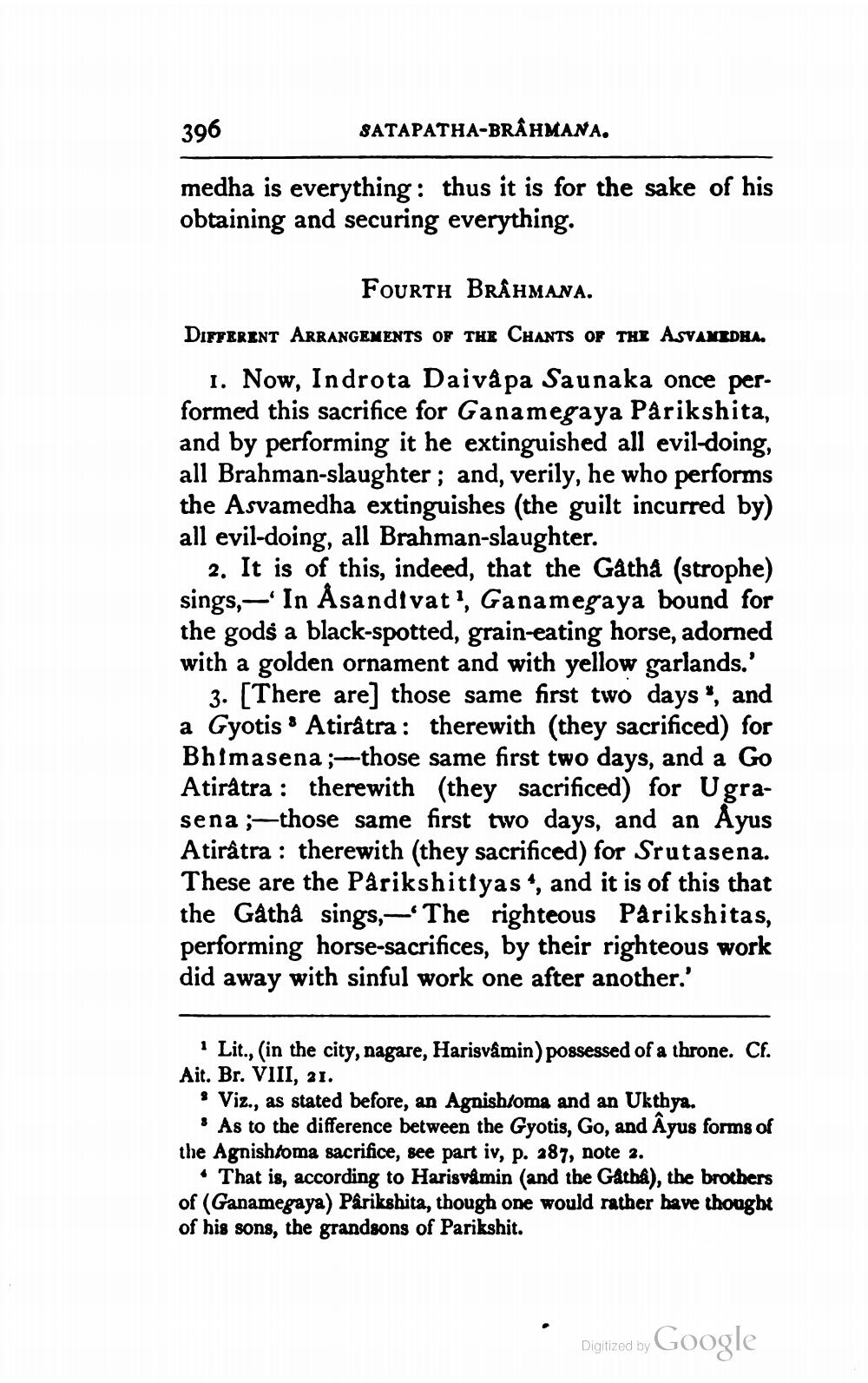________________
396
SATAPATHA-BRAHMANA.
medha is everything: thus it is for the sake of his obtaining and securing everything.
Fourth BRÂHMANA. DIFFERENT ARRANGEMENTS OF THE CHANTS OF THE ASVANEDHA.
1. Now, Indrota Daivåpa Saunaka once performed this sacrifice for Ganamegaya Parikshita, and by performing it he extinguished all evil-doing, all Brahman-slaughter; and, verily, he who performs the Asvamedha extinguishes (the guilt incurred by) all evil-doing, all Brahman-slaughter.
2. It is of this, indeed, that the Gathå (strophe) sings,—“In Åsandivat!, Ganamegaya bound for the gods a black-spotted, grain-eating horse, adorned with a golden ornament and with yellow garlands.'
3. [There are] those same first two days ", and a Gyotis 8 Atirâtra : therewith (they sacrificed) for Bhimasena ;-those same first two days, and a Go Atiratra : therewith (they sacrificed) for Ugrasena ;-those same first two days, and an Ayus Atiratra : therewith (they sacrificed) for Srutasena. These are the Parikshitiyas“, and it is of this that the Gathå sings,—The righteous Parikshitas, performing horse-sacrifices, by their righteous work did away with sinful work one after another.'
· Lit., (in the city, nagare, Harisvâmin) possessed of a throne. Cf. Ait. Br. VIII, 21. * Viz., as stated before, an Agnisbloma and an Ukthya.
As to the difference between the Gyotis, Go, and Âyus forms of the Agnishtoma sacrifice, see part iv, p. 387, note 2.
• That is, according to Harisvimin (and the Gåtba), the brothers of (Ganamegaya) Parikshita, though one would rather have thought of his sons, the grandsons of Parikshit.
Digitized by Google




